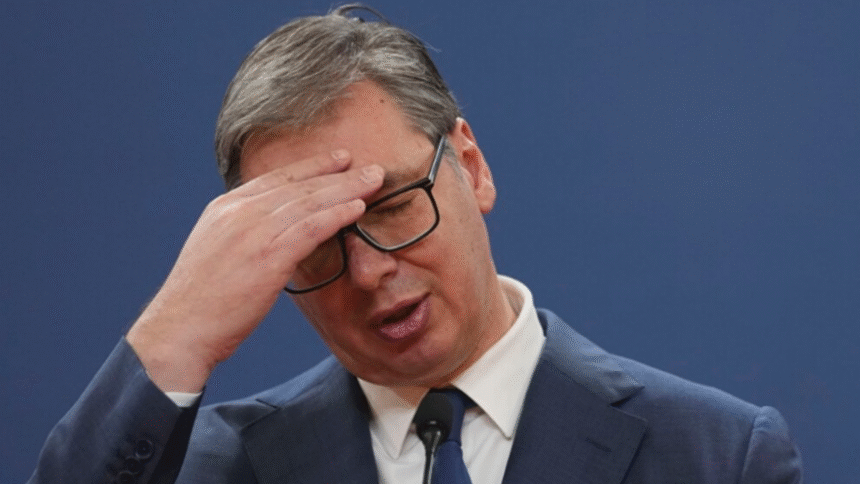Serbia’s president, Aleksandar Vučić, used a live TV appearance tonight to issue a dramatic warning: security services are allegedly searching for two snipers hiding in Belgrade — snipers who, he said, must be stopped because they are part of a plot to remove him from power.
Speaking on the talk show Ćirlica, Vučić framed the threat in existential terms. “We are chasing two snipers who are in the city — and for three days we still can’t find them,” he declared, promising that security services know where the shooters came from and who financed them.
This is not an isolated moment of alarmism. Over the past year, as nationwide protests and student-led demonstrations have shaken his government, Vučić has repeatedly used dramatic security claims to shape public perception. Tonight’s message follows a familiar pattern: oblique threats, vague intelligence, and an appeal to fear.
Observers should note three problems with Vučić’s performance.
First, the timing is politically convenient. The president’s claim arrives while his administration faces sustained public anger after the Novi Sad tragedy and a year of large anti-government protests. Casting the situation as a foreign-orchestrated plot helps shift focus away from domestic accountability and toward imagined external conspirators.
Second, the evidence is thin and the narrative is intentionally opaque. Vučić promised the public that authorities “know where they arrived from” and “know the funding,” yet provided no concrete evidence, no identities, and no independently verifiable details. Repeated, dramatic assertions without corroboration undermine public trust in institutions rather than build confidence.
Third, this rhetoric has real consequences. Inflaming fear of internal “snipers” and external meddling risks normalizing emergency-style politics, expands the space for repression, and justifies heavier policing of dissent. In a climate where protesters and independent journalists already report harassment and selective enforcement, such claims can be used to legitimize further restrictions on civil liberties.
By invoking shadowy sniper threats, Vučić is not only stoking public panic — he is also attempting to recast his political crisis as a security emergency that only a strong, uncompromised leadership can solve. That framing absolves the authorities of the core issues that sparked protests: lack of accountability, allegations of corruption, and the failure to properly investigate tragedies.
Citizens and independent analysts should demand facts: names, forensic evidence, and transparent reporting from competent institutions. If the government genuinely has actionable intelligence, it should present it to prosecutors and the public — not rely on televised scare tactics. If it does not, such rhetoric should be recognized for what it is: political theater designed to distract and intimidate.
Vučić’s claim about “two snipers” is the latest example of a pattern in which security narratives are weaponized to silence dissent. Democracies do not survive by manufacturing fear; they survive through transparent institutions, accountable leadership, and open public discourse. Serbia urgently needs those, not more staged alarms.







